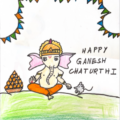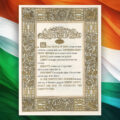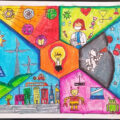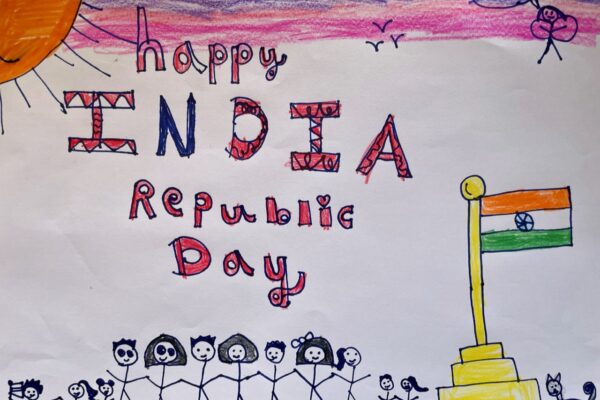
What Do I Write
Sudden, rare bursts and infusions of creativity come and go like those select few, lenient teachers at school or BBMP (Bruhat Bengaluru Mahanagara Palike) workers every season leaving unfinished tasks, and finished roads unfinished.
I always write in the night—either because I prefer napping in the day, or simply owing to the fact that my dark, melancholy self finds the single ray of moonlight surreptitiously sneaking into my bedroom window and creeping onto my desk more inspirational than the sunlit dawn echoing with the dulcet tones of morning birds. The latter background I prefer when it comes to getting lost in the land of dreams.

Quite in contrast to my sombre backdrop of reality, however, I am tempted to weave tales of a humorous, cheerful nature with a “happily-ever-after ending.” Quite obviously, my true, subconscious self-kicks in, preventing me from doing so, resulting in an overly cheerful beginning in a story that has an abrupt ending in distressing asperity.
“A confused state of a plethora of emotions leaving an overwhelmed reader.”—the description by my friend and pathetic excuse of a critic suits my garbled mess of literary works best. But now that I ponder over it (I either contemplate things too much, simplify them too much, complicate them too much or just overthink them too much) I come to the realisation that my texts reflect my thoughts—a confused mess of feelings and emotions finding its way through confused crazy expression.
Quotes like “Early to rise, early to shine” and “Early bird gets the worm” make me bound to try my best at writing in the dawn.
I leave it to accomplished and famous authors like Ernest Hemingway and Ruskin Bond, known for writing early—my feverish attempts to do the same reward me only with a sense of incompleteness and failure I have grown to despise (despite being quite used to it). Despite all the effort I put into forcing my pen to be active (quite hypocritical of me really; I’m one lazy soul) it just doesn’t and is too stubborn to do so—it waits for the mood, exactly like its master.
This vain attempt generally ends in a to-do list or the pros and cons of a recent bill passed by the Supreme Court—any topic that weighs down in my mind from the newspaper I devoured along with my breakfast that morning; usually in neat handwriting. Unless you are a very exceptional case with beautiful handwriting, we seldom write neatly when we write from our heart; it is only when we are copying or noting that our handwriting manages to be legible.

Now you know why exam answer sheets are much messier than classworks.
In the night, however, I manage to write every single thought that occurred to me and my neurons during the day, expressing myself in a confusing, yet organised way, satisfying both my blubbering soul and (now in the mood) restless, tempted fingers.
The day is meant for thinking: four stages—contemplation, conversation, memory and at dusk, collection.
Galileo was not joking when he said, “I’ve never met a man so ignorant I could learn nothing from him.” Be it the neighbour, the friendly watchman, an unlucky friend or an unfortunate passer-by…that happens to be my acquaintance—sharing thoughts, emotions, feelings and tea (I mean gossip) always puts me at ease.
And during those pondering sessions, I happen to recall an old companion, a faded memory or a distant familiar figure I reminisce about. I guiltily confess I live in the past. And why not?
































